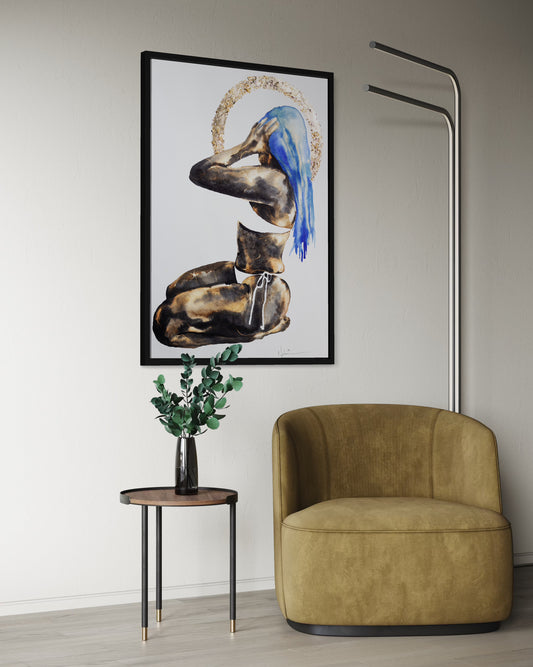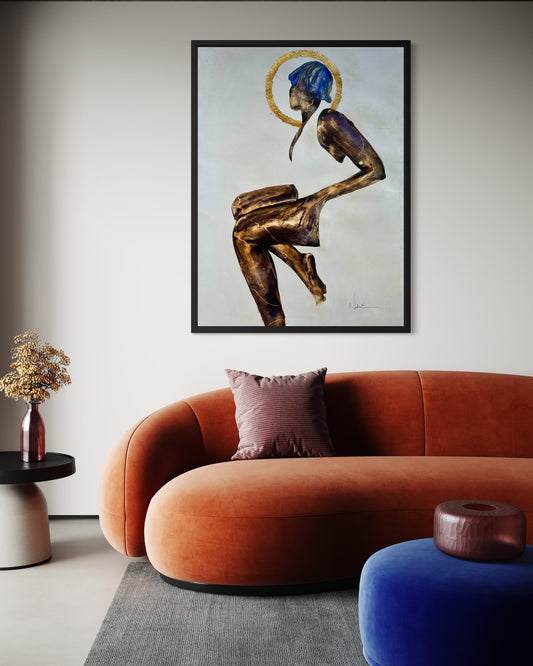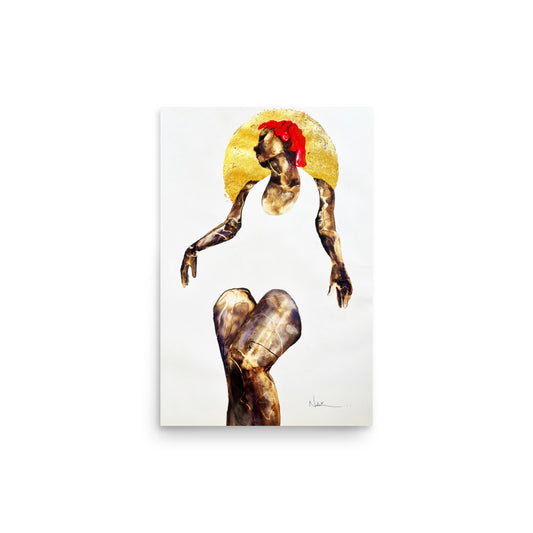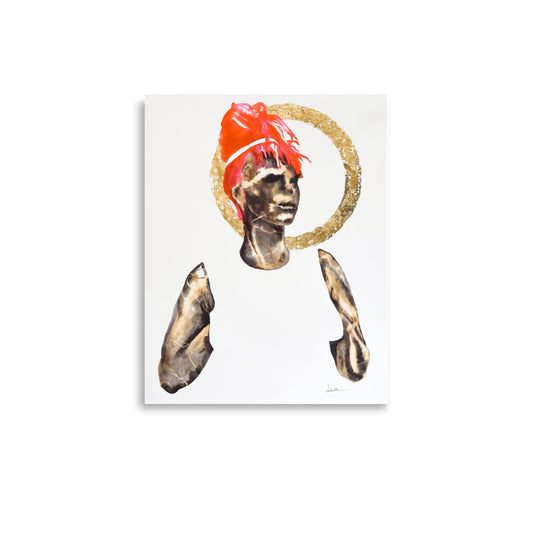Collection: Nadia Wamunyu
Nadia Wamunyu (b. 1993) is a contemporary visual artist based in Nairobi, Kenya. She began drawing at the age of three, encouraged by her father, who nurtured her early talent with brushes and watercolors. That same year, she experienced partial hearing loss due to a medical misdiagnosis—an event that profoundly shaped how she perceives the world and communicates through art.
Over time, art became both her language and her refuge. Under the mentorship of celebrated Kenyan artist Patrick Mukabi, Nadia trained for four years, grounding herself in technical skill while developing a practice rooted in identity, resilience, and embodied storytelling.
Her early works, mainly charcoal drawings and oil paintings, depicted portraits, figures, and later scenes from Lamu town, a place she continues to revisit for inspiration. Over the years, her work has been showcased widely, both locally and internationally, including at GoDown Art Centre, Village Market, Alliance Française, Kuona Artists Collective, US Embassy, British Council, Baitil Aman in Shela, Lamu Fort, Nairobi National Museum, Polka Dot Art Gallery, Circle Art Gallery, Absa Gallery (South Africa), Kerry Packer Civic Gallery (Australia), AKKA Project (Italy), Miami Art Fair (USA), East Africa Art Endeavor (Poland), and Gallery Brulhart (Switzerland), among others.
Nadia has also participated in the prestigious Manjano Art Competition & Exhibition, organized by GoDown Art Centre, winning first prize in the student category (2013) and third prize in the artist category (2020). She also took part in the Lamu Painters Festival in 2015 and 2017.
Currently a member of Kuona Artists Collective, Nairobi, Nadia experiments with unconventional materials such as coffee on paper, ink, pastel, mixed media, and photography. She often uses her own half-Nubian female body as a central motif, exploring emotions, insecurities, and lived experiences as a young African woman. More broadly, her practice addresses identity crises among young African women and engages with urgent themes including feminism, body politics, sex work, sexual violence and harassment, discrimination, disability, and mental health.

-
Art Print | Ocean's Embrace - Nadia Wamunyu
Vendor:Nomad StudiosRegular price From €30,00 EURRegular priceUnit price / per -
Art Print | Koroba II - Nadia Wamunyu
Vendor:Nomad StudiosRegular price From €30,00 EURRegular priceUnit price / per -
Art Print | Koroba I - Nadia Wamunyu
Vendor:Nomad StudiosRegular price From €30,00 EURRegular priceUnit price / per -
Art Print | My Body My Choice - Nadia Wamunyu
Vendor:Nomad StudiosRegular price From €30,00 EURRegular priceUnit price / per -
Art Print | A Lady & Towel - Nadia Wamunyu
Vendor:Nomad StudiosRegular price From €30,00 EURRegular priceUnit price / per -
Art Print | Black Is Gold III - Nadia Wamunyu
Vendor:Nomad StudiosRegular price From €30,00 EURRegular priceUnit price / per












